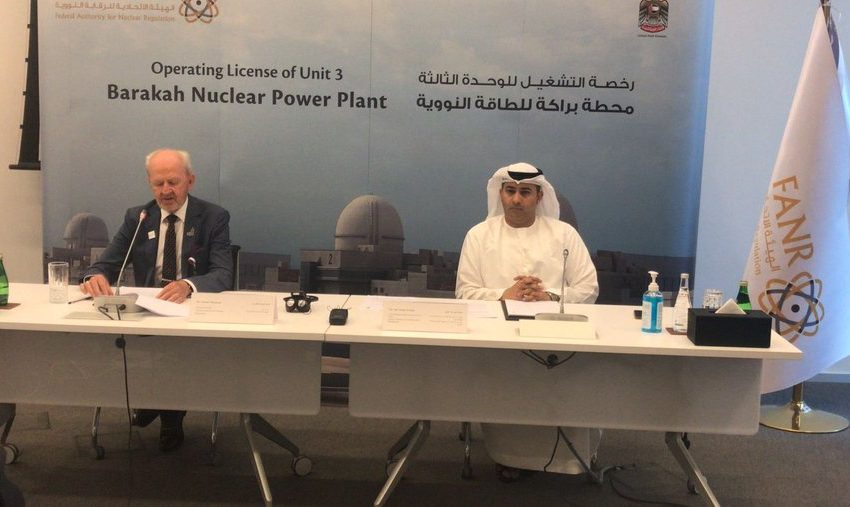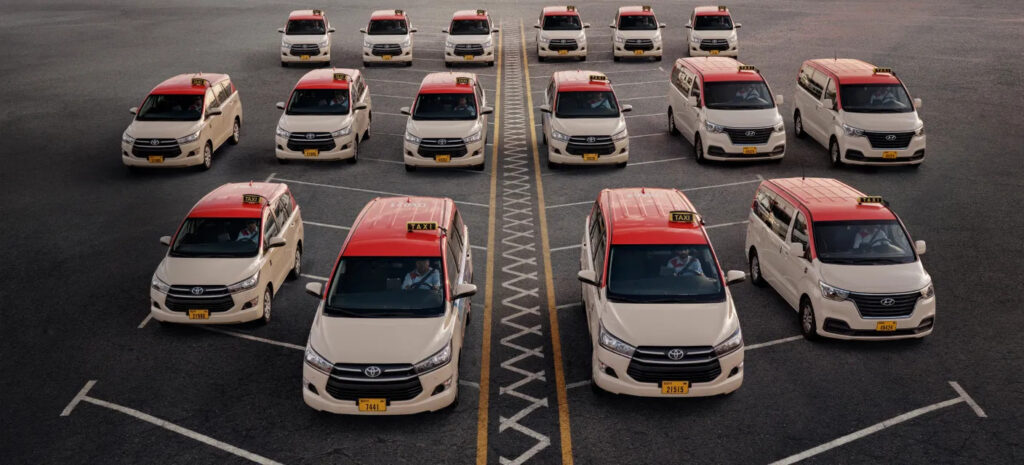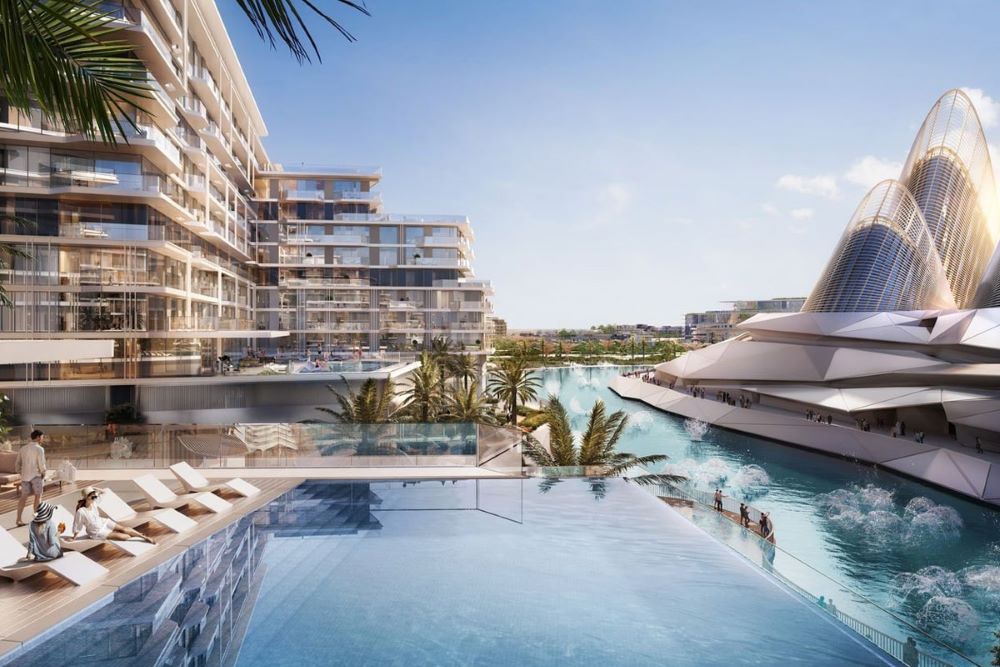
globalbizmag.com
FANR Issues operating licence for the third unit of Barakah Nuclear Power Plant
The Federal Authority for Nuclear Regulation (FANR), the regulatory body responsible for regulating the nuclear sector in the UAE, on Friday issued the license to operate the third unit of the Barakah Nuclear Power Plant for Nawah Energy Company.
Nawah Energy, a subsidiary of the Emirates Nuclear Energy Corporation, which is responsible for operating the plant located in the region Al Dhafra in the Emirate of Abu Dhabi, will be authorized to operate the third unit of the Barakah Nuclear Power Plant for the next 60 years.
The issuance of the license comes as a culmination of the efforts made by FANR since it received the application for a license from Nawah Company for the third and fourth units in 2017.
The FANR issued similar licences in February 2020 and March 2021 for the first unit and the second unit, respectively, of the Barakah Nuclear Power Plant, and continued its supervisory tasks until the two plants reached the stage of full commercial operation.
After receiving the license for the third unit, Nawah Energy will begin the period of preparations for commercial operation, during which FANR will conduct round-the-clock inspections, relying on its inspectors residing at the Barakah Nuclear Energy Plant, and dispatch other inspectors to ensure that fuel loading and tests are completed in accordance with the requirements oversight.
Comprehensive Evaluation
The authority reviewed the request which included a comprehensive evaluation of the attached documents. With demand, the application of strict control measures, in addition to conducting thorough inspections of the plant.
The evaluation process included a review of the nuclear plant’s design, and a geographical and demographic analysis of its location. The evaluation process also included a review of the nuclear reactor’s design, cooling and safety systems, security measures, emergency preparedness procedures, radioactive waste management, and other technical aspects.
The authority reviewed the 14,000-page license application for the third and fourth units, and conducted more than 120 inspections and requested additional information for the third unit on various topics, including reactor design, safety and security factors, and others to ensure compliance with all regulatory standards.
The Permanent Representative of the UAE to the International Atomic Energy Agency (IAEA) and Vice Chairman of the Board of Directors of the FANR, Ambassador Hamad Al Kaabi, said: “Today’s announcement represents a significant milestone in the UAE’s journey, being the first Arab country to operate a nuclear power plant, and it is a culmination of efforts This achievement was achieved thanks to the vision of the UAE and its leadership to build a peaceful nuclear energy program to meet the country’s energy needs in the future.”
He added: “The UAE’s nuclear energy program, including the nuclear law and regulatory regulations, is in line with the IAEA’s safety standards and in line with international best practices, as the authority has been keen to ensure that they are fully adhered to during the construction process of the Barakah Nuclear Energy Plant. The issuance of the license is the culmination of the process of cooperation and intensive work between the various concerned parties at the national and international levels, such as the IAEA, the Republic of Korea and other international regulatory bodies.”
FANR Director General Christer Viktorsen said, “FANR has played a vital role in supervising the construction and development of the Barakah Nuclear Power Plant since 2009, especially after we received an application for a license to operate Units 3 and 4 in 2017. We have conducted extensive reviews and inspections to ensure compliance with The station meets all regulatory requirements, and operates it according to the highest levels of safety. The authority has also completed its preparations to start the operation phase of the third unit, which includes taking the necessary steps to implement control measures and conduct the necessary inspections to ensure that the station operates in accordance with safety standards.”










